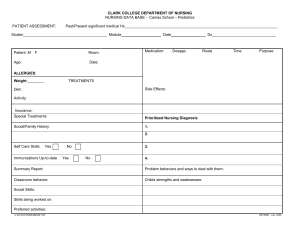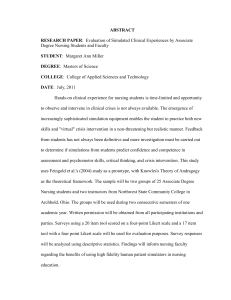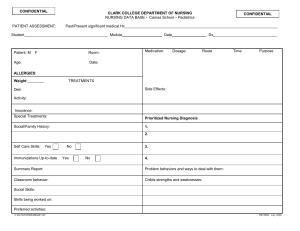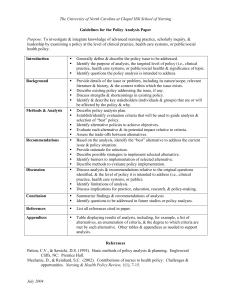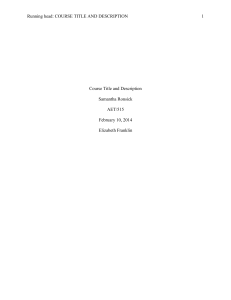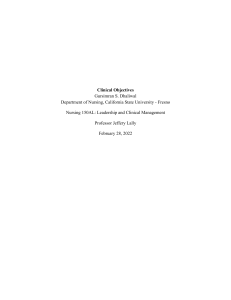Nursing Clinical Objectives - Level I
advertisement
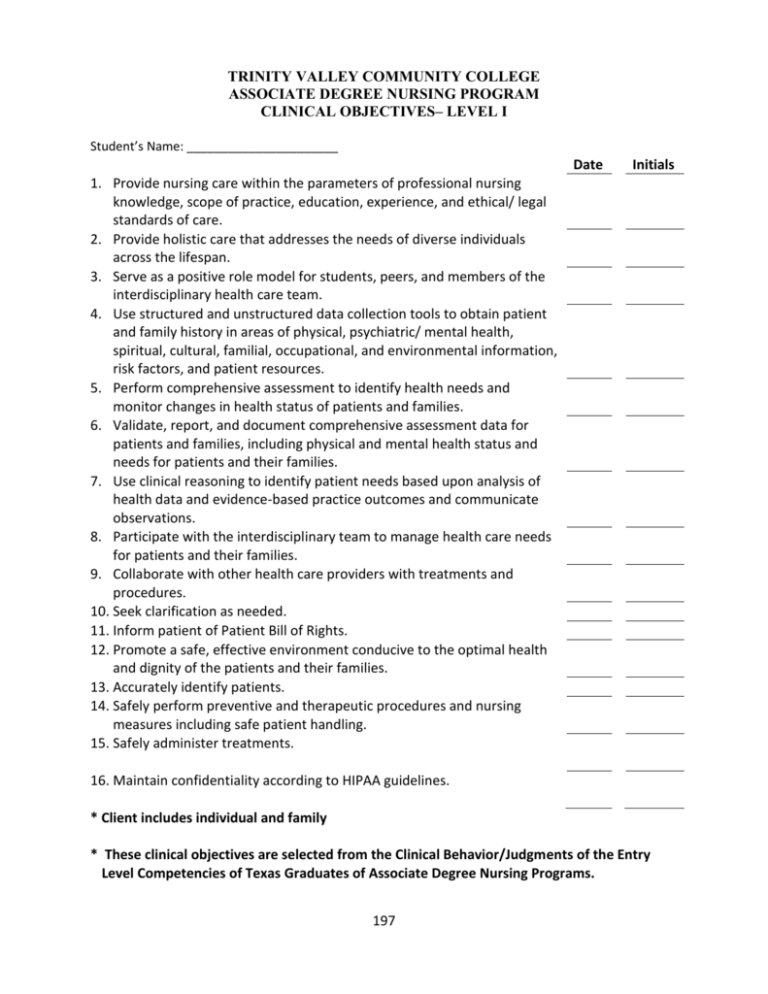
TRINITY VALLEY COMMUNITY COLLEGE ASSOCIATE DEGREE NURSING PROGRAM CLINICAL OBJECTIVES– LEVEL I Student’s Name: ______________________ Date Initials 1. Provide nursing care within the parameters of professional nursing knowledge, scope of practice, education, experience, and ethical/ legal standards of care. 2. Provide holistic care that addresses the needs of diverse individuals across the lifespan. 3. Serve as a positive role model for students, peers, and members of the interdisciplinary health care team. 4. Use structured and unstructured data collection tools to obtain patient and family history in areas of physical, psychiatric/ mental health, spiritual, cultural, familial, occupational, and environmental information, risk factors, and patient resources. 5. Perform comprehensive assessment to identify health needs and monitor changes in health status of patients and families. 6. Validate, report, and document comprehensive assessment data for patients and families, including physical and mental health status and needs for patients and their families. 7. Use clinical reasoning to identify patient needs based upon analysis of health data and evidence-based practice outcomes and communicate observations. 8. Participate with the interdisciplinary team to manage health care needs for patients and their families. 9. Collaborate with other health care providers with treatments and procedures. 10. Seek clarification as needed. 11. Inform patient of Patient Bill of Rights. 12. Promote a safe, effective environment conducive to the optimal health and dignity of the patients and their families. 13. Accurately identify patients. 14. Safely perform preventive and therapeutic procedures and nursing measures including safe patient handling. 15. Safely administer treatments. 16. Maintain confidentiality according to HIPAA guidelines. * Client includes individual and family * These clinical objectives are selected from the Clinical Behavior/Judgments of the Entry Level Competencies of Texas Graduates of Associate Degree Nursing Programs. 197
